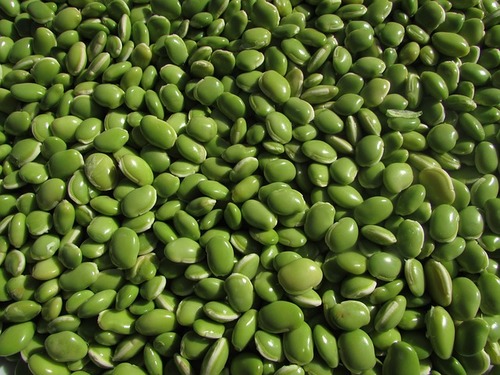Short answer
Legumes are an excellent source of fiber and protein, but should be eaten in moderation to avoid the risk of mineral deficiencies.
Recommended Alternative
Very beneficial to your health. Things rated a 'B+' may have a few harmful qualities to pay attention to.
View Full Grading System
Category 'A'
Very healthy and numerous health benefits. Side effects are rare. Things rated an 'A+' are typically necessary for survival (for example, water).
Very healthy and numerous health benefits. A few harmful qualities may be associated, but only under certain circumstances such as an allergic reaction.
Very healthy and numerous health benefits. Harmful qualities may be associated, but aren't usually serious.
It is important to note that even the best things in life can become bad in immoderate amounts. So, although something may be rated an 'A+', overconsumption/overdoing can bring unwanted effects.
Category 'B'
Very beneficial to your health. Things rated a 'B+' may have a few harmful qualities to pay attention to.
Overall beneficial to your health. Things rated a 'B' may have some harmful qualities to pay attention to.
More beneficial to your health than not. However, harmful qualities are most likely associated and shouldn't be overlooked.
The main difference between category 'A' and category 'B' is the harmful qualities typically present in 'B' items. Serious side effects are usually uncommon, but are still possible and should be taken note of.
Category 'C'
Both beneficial and harmful qualities associated. Things rated a 'C+' are typically a bit more on the beneficial side. Still, moderation is important.
A fairly even ratio of beneficial and harmful qualities. Moderation is important. Very general topics that can lean towards both sides of the spectrum will be placed here as well. Rice, for example, can be good or bad depending on the type.
More harmful than beneficial. Side effects are common, especially when consumed/done excessively. Moderation is very important.
Category 'C' usually denotes to both good and bad qualities. When it comes to this category, it is important to keep this word in mind: moderation.
Category 'D'
Harmful to your health. Although benefits may be associated, the bad most likely outweighs the good. Moderation is very important.
Harmful to your health. A few benefits may be associated, but the bad outweighs the good. Moderation is extremely important.
Harmful to your health. Very few, if any, benefits are present. Things in this category should be avoided as much as possible.
Category 'D' is typically for things that are more harmful than beneficial. While consuming/doing something unhealthy once in a blue moon shouldn't hurt, we definitely recommend eliminating 'D' items as a regular part of your routine/diet.
Category 'F'
Category 'F' is for things that fail to bring anything beneficial to the table, and are very harmful to your health. We recommend completely avoiding anything in this category. Long-term side effects of 'F' items are usually very serious.
Category 'N'
'N' stands for neutral. Things placed into this category are generally (a) neither good nor bad for you, or (b) lack the necessary evidence to reach any conclusions.
Long answer
The term "legume" refers to a variety of plants that grow seeds in a pod. These include lentils, peanuts, and a variety of beans and peas. As a whole, legumes are an excellent source of both fiber and protein. While nutritional values will depend on the legume in question, one serving (or about one cup) can often have between 15% and 75% of your daily recommended intake of protein, and about 25% to 60% of fiber.
Protein is necessary for the reparation of muscles, skin, bones, hair and nails. It is important not only for gym-goers to help bulk up, but also for everyone else as well so their bodies can function optimally. Fiber is also very important as it prevents constipation, and promotes increased regularity. By cleansing the colon and encouraging regular bowel movements, fiber can also help reduce the risk of colon cancer. Furthermore, fiber balances blood sugar and cholesterol, thereby helping to prevent and manage both diabetes and heart disease.
However, legumes also contain phytic acid which interferes with the absorption of certain minerals, including calcium, zinc, and iron. Over time, this interference can lead to mineral deficiencies with symptoms that range in severity, from exhaustion and slow healing time for wounds, to arthritis, depression, and osteoporosis. This is more of a concern if legumes are eaten in excess, or if they are the primary source of protein in the diet. Vegetarians are more at risk for developing these deficiencies as zinc and iron from meat can absorb effectively even when phytic acid is present. As long as they are eaten in moderation, legumes are a healthy way to get the fiber and protein you need in your diet.
Possible long-term side effects
Ingredients to be aware of
Benefits
- manage blood sugar levels
-
increased regularity
-
balance cholesterol
-
repair muscles
-
encourage proper fetal development
-
keeps you feeling fuller for longer
Our Wellness Pick
(what is this?)
Eden Organic Black Beans
- No salt added
- Non-GMO
- U.S. grown
- Ready to serve
- Macrobiotic friendly
Learn More!
Please turn your Ad Blocker off to see this content. Thank you!
Thank you for your feedback!
Written by Lindsay
Published on: 01-27-2016
Last updated: 12-15-2023
Thank you for your feedback!
Written by Lindsay
Published on: 01-27-2016
Last updated: 12-15-2023

 Approved by
Approved by 















